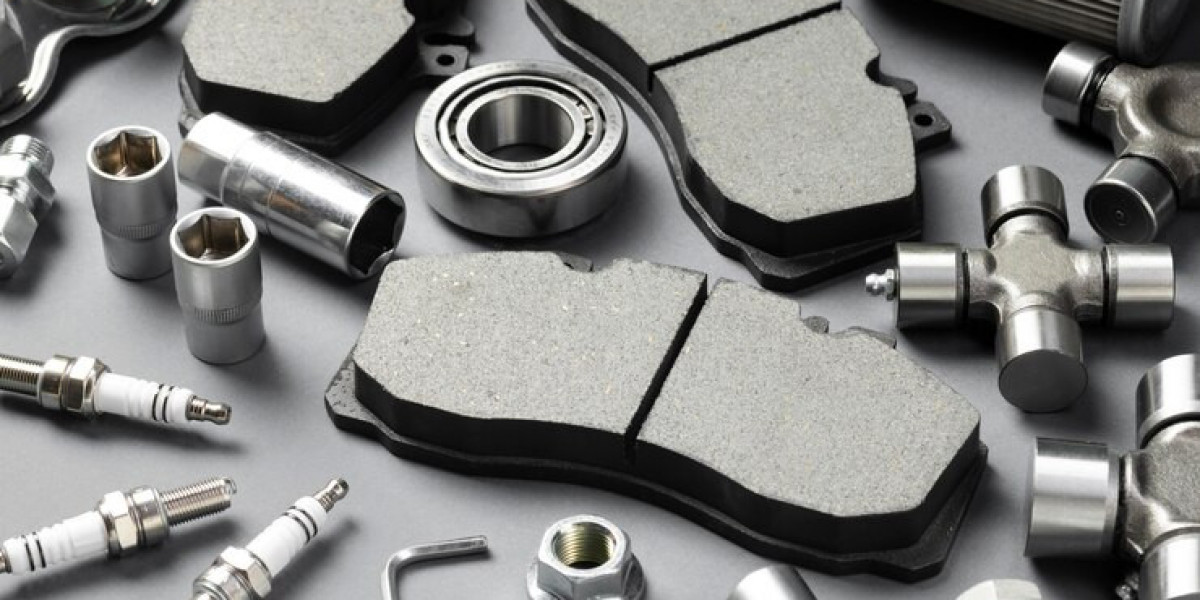Most people focus on temperature control and cozy furnishings when creating a comfortable home environment. However, one often overlooked aspect is the air quality we breathe indoors. This is where an HRV heating system steps in as a game changer. Not only does it help maintain warmth during chilly months, but it also plays a crucial role in enhancing indoor air quality (IAQ).
Imagine stepping into your home after a long day and feeling refreshed by clean, fresh air that circulates freely. With an ventilation system, this isn't just wishful thinking—it's possible! Let’s dive deeper into how these systems work and why improving IAQ can be pivotal for your health and well-being.
Understanding Indoor Air Quality and Its Impact on Health
Indoor air quality (IAQ) refers to the cleanliness and safety of the air inside buildings. It significantly affects our health, especially since many people spend up to 90% of their time indoors.
Poor IAQ can lead to various health issues, ranging from minor irritations like sneezing and headaches to more severe conditions such as asthma or respiratory infections. Pollutants commonly found in homes include dust, mould, pet dander, and volatile organic compounds (VOCs) from everyday products.
The impact of these pollutants isn’t just physical; it can also affect mental well-being. Studies suggest poor indoor environments may contribute to fatigue, decreased productivity, and mood swings.
Understanding these factors highlights the importance of maintaining good IAQ for overall wellness. A proactive approach ensures healthier living spaces free from harmful contaminants that could compromise our health over time.
How Does a Ventilation System Work?
An ventilation system operates by exchanging stale indoor air with fresh outdoor air, helping maintain a balanced home environment. The heart of the system is the heat exchanger. As warm, moist air exits your home, it passes through this component. The heat from the outgoing air warms up incoming cooler air without mixing.
This method enhances comfort and saves energy costs. You benefit from fresh air while retaining warmth during colder months. Fans are strategically placed to ensure consistent airflow throughout your space. They work quietly and efficiently to keep indoor conditions stable.
Filters clean incoming air, removing dust and allergens before they circulate into living areas. Regular maintenance ensures these filters function optimally for better health outcomes. An ventilation system combines efficiency with effectiveness for improved indoor environments.
Benefits of Ventilation System for Indoor Air Quality
A well-designed ventilation system, like an HRV Heating, enhances indoor air quality. It circulates fresh air throughout your living space while expelling stale air. This constant exchange creates a healthier environment.
1. Removes Pollutants and Contaminants
One of the main benefits of a ventilation system is that it helps remove pollutants and contaminants from indoor air. Indoor air can contain various harmful substances, such as dust, allergens, chemicals, and volatile organic compounds (VOCs). These pollutants can cause respiratory problems, allergies, and other health issues. A ventilation system continuously exchanges fresh air with stale air, diluting the concentration of these pollutants and improving indoor air quality.
2. Reduces Humidity and Moisture
Excess humidity in a living space can lead to mould growth, which can cause health problems and damage to your home's structure. A ventilation system helps reduce humidity levels by drawing in drier outdoor air and expelling moist indoor air. This process also helps prevent condensation on windows and walls, which can lead to mould growth.
3. Prevents Stale Air Buildup
Stale air buildup can be shared in tightly sealed homes or buildings with poor ventilation. This can lead to unpleasant odours, stuffy rooms, and an uncomfortable living environment. A ventilation system continuously circulates fresh air throughout your living space, preventing stale air buildup and creating a more pleasant atmosphere.
4. Improves Overall Health and Well-being
Indoor air quality has a significant impact on our health and overall well-being. Poor indoor air quality can lead to respiratory problems, allergies, headaches, fatigue, and other health issues. A well-designed ventilation system improves indoor air quality by removing pollutants, reducing humidity, and preventing stale air buildup. This creates a healthier living environment for you and your family.
Factors to Consider When Choosing an HRV Ventilation System
Choosing the right HRV ventilation system requires careful consideration of several key factors. Start with the size of your home. A system that’s too small won’t effectively manage air quality, while an oversized unit can waste energy.
Next, consider your climate. Different systems perform better in varying weather conditions. If you live in such an area, look for a model designed to handle extreme temperatures.
Efficiency ratings are another crucial aspect. Higher efficiency often translates to lower energy bills and better performance over time.
Don't forget about installation requirements as well. Some units may need professional setup or additional ductwork, impacting overall costs.
Think about noise levels. Opting for a quieter model will enhance comfort without disruptive sounds during operation. These considerations play a significant role in ensuring you choose the best ventilation system for your needs.
Maintenance and Care Tips for Optimal Performance
Regular maintenance is crucial for keeping your HRV heating running smoothly. A simple monthly check of the filters can make a big difference. Clean or replace them as needed to ensure proper airflow. Inspect the ducts and vents at least twice a year. Dust and debris can accumulate, which may hinder performance.
Remember humidity levels in your home. Overly humid environments can impact your system's efficiency. Use dehumidifiers if necessary. Schedule professional inspections annually. Experts can spot issues you might miss and provide valuable insights.
Familiarize yourself with your unit's control settings. Adjusting them according to seasonal changes maximizes performance while enhancing indoor comfort. These steps will help sustain an efficient ventilation system that benefits air quality and overall health.
Investing in Your Health with a Ventilation System
Investing in an ventilation system is a proactive step toward better health. This technology enhances comfort and ensures that the air you breathe indoors is clean and fresh.
These systems continuously exchange stale indoor air with filtered outdoor air, reducing pollutants, allergens, and moisture levels. This process significantly lowers the risk of respiratory issues and allergies.
Moreover, improved indoor air quality can lead to better sleep patterns and increased productivity. A well-ventilated home creates a healthier environment for everyone.
Consider it an investment in your family's overall well-being. The initial cost may seem daunting, but the long-term benefits outweigh the expense. Your health deserves this priority; breathing easier starts at home.
Other Ways to Improve Indoor Air Quality
Improving indoor air quality goes beyond just installing an HRV heating. Simple changes can make a significant difference. Start by incorporating houseplants. They naturally filter toxins and increase oxygen levels, creating a fresher environment.
Regular cleaning is essential, too. Dust and allergens accumulate quickly in homes, so vacuuming carpets and upholstery often helps maintain cleanliness. Consider using air purifiers equipped with HEPA filters to capture fine particles that might escape your attention.
Be mindful of the products you use for cleaning or personal care. Opt for low-VOC (volatile organic compounds) alternatives to minimize harmful emissions into your space.
Ensure proper humidity control within your home. Dehumidifiers can help prevent mould growth while maintaining a comfortable atmosphere conducive to good health.
The Link Between IAQ and Health
Indoor Air Quality (IAQ) is critical to our overall health. Poor IAQ can lead to various ailments, from respiratory issues to chronic fatigue. When the air we breathe is filled with pollutants, allergens, and toxins, it places an undue strain on our bodies.
Studies show that individuals exposed to low-quality indoor air may experience headaches, dizziness, and even long-term conditions like asthma or heart disease. Vulnerable groups such as children and the elderly are particularly at risk. Moreover, poor IAQ can affect psychological well-being. Unpleasant odours and irritants contribute to stress levels and reduced focus.
Investing in systems like HRV ventilation ensures fresh air circulates while removing harmful particles. This proactive approach enhances comfort and fosters better health outcomes for everyone in your home or workplace.
Conclusion
Investing in an HRV heating system can significantly enhance your indoor air quality. A well-maintained ventilation system filters out pollutants and helps balance humidity levels. This is crucial for respiratory health, reducing the risk of allergies and other ailments. Proper ventilation also enhances comfort and energy efficiency. Explore various available options today, considering factors like size and installation requirements. Your home deserves the best care possible regarding air quality and overall wellness.
FAQs
What is an HRV Heating System?
An HRV heating system, or Heat Recovery Ventilation system, is designed to improve indoor air quality by exchanging stale indoor air with fresh outdoor air. It captures heat from the outgoing air and preheats the incoming fresh air, ensuring energy efficiency while maintaining comfort.
How often should I maintain my Ventilation System?
Regular maintenance is crucial for the optimal performance of ventilation system. It's recommended to check filters every three months and replace them as needed. Additionally, a yearly professional inspection can help identify any potential issues before they become significant problems.
Can a Ventilation System help with allergies?
Yes, a ventilation system can significantly reduce allergens in your home. Continuously bringing in filtered outdoor air and exhausting stale indoor air filled with pollutants like dust mites and pet dander creates a healthier living environment that may alleviate allergy symptoms.
Related Business Listings |









